The government first disclosed its proposal to amend the Federal Constitution on citizenship rights in June 2023: Firstly to give Malaysian citizenship to children born overseas to Malaysian mothers as promised in the 2022 general election manifesto.
Secondly, which was the alarming part, additional amendments which effectively stripped away citizenship rights from certain groups of Malaysian babies and children.
The second part of the packaged amendments is widely referred to as the “regressive amendments” for very obvious reasons.
The proposal on the regressive amendments met with major pushback since its disclosure. For reference, the proposed list of regressive amendments has been set out on the 100Malaysians Instagram page.
Other than reports of statements by the government, I have yet to find an article or statement issued by any person to support or justify the government’s proposed regressive amendments.
The proposed regressive amendments originated from the government.
It is for them then to give reason/s for the proposed regressive amendments, especially when the said amendments will have devastating consequences for thousands of Malaysian babies and children and generations after them.
Ironically, March 8, 2024, on International Women’s Day, the cabinet is meeting to finalise the proposed amendments for tabling in Parliament.
The home minister has earlier announced that the party whips have been called to get their agreement in preparation for the tabling of the proposed constitutional amendments in Parliament.
To date, there has been no news that the government has considered dropping any of the proposed regressive amendments despite many groups urging the government to halt the regressive amendments altogether or to decouple the amendments (i.e. the proposed amendments on Malaysian mothers’ right to confer citizenship on their children born overseas to be tabled in Parliament separately from the proposed amendments stripping some Malaysian babies and Malaysian children of their automatic right to citizenship).
National security?
The government has indicated national security as the reason for the proposed regressive amendments.
There is great difficulty in trying to understand why the government is proposing to take away citizenship rights - from some Malaysian babies and children no less - and how the government can view these groups of Malaysian babies and children as a threat to national security.
These babies and children are Malaysians because the Federal Constitution provides them with automatic citizenship based on the conditions set out therein. If they were not Malaysians, the Federal Constitution wouldn’t apply to them, and ergo, there would be no necessity to amend the Federal Constitution.
If these Malaysian babies and children pose a problem - it is the problem which will occur when these babies and children grow up.
Because of the regressive amendments and after having their citizenship taken away, they are cast out as “non-citizens” and consequently denied any access to healthcare and opportunities to go to school, open a bank account, and thereafter not able to hold down any permanent employment.
Before tabling the proposed regressive amendments in Parliament, the Home Ministry must have data and explanations to support its dangerous move to amend the Federal Constitution considering the devastating consequences on thousands of Malaysian babies and children.
If no data and explanation are provided before tabling the proposed amendments, I hope one brave MP on the ruling side will stand up and seek answers to the following:
What are the problems which the Home Ministry intend to curtail or prevent by the proposed amendments to the extent that Malaysian babies and Malaysian children need to be stripped of their citizenship by operation of law and cast out as “non-citizens”?
How many babies, children, and adults will be made non-citizens on account of each regressive amendment proposed by the Home Ministry?
Looking at the population of Malaysia, how are these different groups of children, babies, or adults identified in question 2 a national security threat? What national danger do they pose?
What does the government propose to do with the thousands of Malaysian babies and children rendered stateless overnight by the passing of the regressive amendments? Make them apply for citizenship by registration under what new conditions? And what happens to those who are denied citizenship after they apply?
How many more detention centres have to be built by the government for children who are denied citizenship (even after they apply) and what is the cost of detaining one child per day?
What other laws will the government have to amend to ensure uniformity with the proposed regressive amendments after they are passed? Will laws currently protecting children have to be amended to make exceptions for those without citizenship, to allow for detention, as well as denial of healthcare and education?
And finally, is it true that without the proposed regressive amendments, the proposal to grant rights of babies born overseas to Malaysian mothers will not be tabled in Parliament? Meaning, effectively, that one group of children getting their citizenship rights will mean another different group of children losing theirs?
Current unsolved problems of statelessness
Currently, even before the proposed amendments are tabled, there are many Malaysian babies and children deprived of their citizenship documents because of the Home Ministry’s reluctance to issue birth certificates, newborn identification cards (MyKids), or National Registration Identity Cards (NRICs or MyKads).
These, notwithstanding the Federal Constitution, has provided that they are citizens by operation of law. In other words, although the law provides them with automatic citizenship, some of these children have been waiting for over 15 years before citizenship documents are granted.
If the regressive amendments are passed, these groups of Malaysian children will be rendered “stateless”, having the status of “bukan warganegara”. They can only be citizens “by registration”.
In other words, these groups of Malaysian children having their automatic citizenship taken away will have to apply for Malaysian citizenship, no different from foreigners applying for Malaysian citizenship.
Make no mistake, the proposed regressive amendments are targeted at Malaysian babies or children:
those born in Malaysia to one Malaysian parent
foundlings
abandoned babies in Malaysia that the law presumes to be born to a mother who is permanently residing in Malaysia
the children of parents who have been permanent residents in Malaysia (e.g. parents who have government-issued Red ICs at the time of the child’s birth)
or to babies and children born in Malaysia who are stateless (i.e. there is no other country which claims or admits them as citizens)
The proposed regressive amendments do not concern children of refugees and migrant workers who have citizenship in other countries.
Foundlings and abandoned babies make up some of those whom the Home Ministry is seeking to cast out as non-citizens by its proposed regressive amendments to repeal Article 19B.
In the case of CCH & Anor (on behalf of themselves and as litigation representatives of one CYM, a child) v Pendaftar Besar bagi Kelahiran dan Kematian, Malaysia [2022] 1 MLJ 71, the Federal Court by a five-member bench ordered the Home Ministry to give effect to Article 19B to issue citizenship papers to a foundling child after holding upholding the child’s right to Malaysian citizenship under the Constitution and taking judicial notice of the “harsh realities of life: this includes newborn children left abandoned near dumpsites, baby hatches, public or school toilets, places of worship, and so on”.
Other than foundlings and abandoned babies in Malaysia, the other groups of children who will be cast out as “non-citizens” by the proposed regressive amendments will include (but are not limited to):
children born out of wedlock where the father is a Malaysian and the mother a foreigner
legally adopted children by Malaysian parents whose adopted children are denied citizenship
abandoned children fostered but not legally adopted without proper documentation
children born to either parent who is at the time of their birth a permanent resident in Malaysia. These parents include Orang Asli or Orang Asal who have not been registered as citizens even though they and/or their forefathers lived in Malaysia long before Malaya’s Independence Day or Malaysia Day, e.g. the Lundayeh communities in East Malaysia.
National concern, not national threat
The babies and children who will face the devastating consequences of the regressive amendments are Malaysian babies and Malaysian children of the most marginalised and vulnerable groups here in our nation.
The conditions under which these children live within our borders, living here with us with no access to education and healthcare, is a national concern and not a national threat.
The government has a duty to assist these groups of children and not further deprive them of their citizenship through the proposed regressive amendments.
By taking away their citizenships, the government is not only disowning these children whose parents or family have deep roots and growing ties in Malaysia, but they are being abandoned without any access to healthcare and education, and no access to job opportunities to make a future for themselves.
The government is setting them up to fail by effectively funnelling them into “statelessness”.
Without the protection of citizenship, they will live a life subjected to threats of exploitation in human trafficking, violence, and child marriages which will further cause inter-generational statelessness and poverty on top of trying to survive without basic access to education and healthcare.
For the most part, the Home Ministry knows who these babies or children are because they are awaiting their birth certificates, MyKids, or NRICs.
Some are even in government welfare homes, some are adoptees with anxious adopted parents, and some are with parents with red ICs – these children can be traced if the government would only recognise them as citizens (as provided by law) and have them recorded as such.
For those who have not applied for citizenship documents, the Home Ministry should go on a citizenship campaign to encourage registration instead of limiting their access to citizenship.
Yet, the Home Ministry’s focus and solution is to make these Malaysian babies and children non-citizens through the proposed regressive amendments.
The overpopulation or floodgate concern is a myth. The proposed amendments will not curtail the population growth or reduce Malaysia’s population (if that is the concern of the Home Ministry). Neither will the regressive amendments curb or stop the migration of refugees or undocumented migrants into Malaysia.
The only way to stop the inflow of undocumented persons into Malaysia is at the entry points - by immigration enforcement. That is something the Home Ministry should look into.
Unless border controls are tightened, the influx of undocumented migrants will continue with or without the regressive amendments.
Real effect of proposed amendments
If the regressive amendments are passed, these groups of Malaysian babies and children (some are adults now) cast out of the system as “non-citizens” will not disappear, no matter how much the Home Ministry would like to make them invisible by rendering them stateless.
They cannot depart from Malaysia because they have no passports. They will not depart because Malaysia is their only home. These children will grow up undocumented, uneducated, and without recognition as citizens, having no right to remain in this country.
The Immigration Department has a right to detain children with no identification documents. Those arrested and detained for being undocumented will be put in prisons or detention centres made for children, or if they are adults, in the already overcrowded detention centres.
The net effect on the Home Ministry for this whole exercise (if the regressive amendments are passed) will be to have a higher undocumented population. Not a reduced population.
The other dire effects of the regressive amendments apart from taking away automatic citizenship are cutting short the access to citizenship and limiting the current jurisdiction of the courts in its exercise of judicial oversight.
It will be even more difficult for anyone to challenge the denial of citizenship when wider discretion is given to the government in deciding citizenship applications.
If the regressive amendments are passed by Parliament, the Home Ministry will have to deal with over 150,000 unprocessed applications (figures as of 2023 as revealed by the honourable Home Minister).
The government will need to deploy more resources for the growing number of applications for citizenship which would have been automatic but for the regressive amendments.
Currently, the Home Ministry only processes 10,000 applications per year. Imagine a Malaysian child having to wait 15 to 20 years to get citizenship papers.
The tragedy of the proposed regressive amendments is that it is an exercise that displays the government’s lack of understanding of the importance of citizenship as a basic child right and human right and the absence of appreciation for the fact that our Federal Constitution was drafted and formed to prevent statelessness.
Even those found of treason or disloyalty to the nation will not be deprived of their citizenship if as the result of the deprivation of his or her citizenship, that person would not be a citizen of any country (i.e. stateless).
It is a sad state of affairs that while other nations are progressing by drafting laws and policies to prevent statelessness, our government is proposing to repeal legal provisions that have the effect of generating further statelessness.
Cost of detention
If the regressive amendments are passed in Parliament, the Home Ministry will need to increase its budget for building more detention centres for these children whom they have rendered “stateless”.
In 2023, Prime Minister Anwar Ibrahim announced that Budget 2024 would include an allocation of RM10 million for more “shelters” to especially house children detained by immigration authorities.
The fate of the affected groups of Malaysian babies and children rendered “stateless” by the proposed regressive amendments (if passed) will look like this: They will be detained, separated from their families and homes, and put in detention centres, called “shelters”.
It was reported by The Star on Oct 17, 2018, that the estimated cost per detainee in immigration detention centres is RM80 per day and in July 2020, it was reported by Berita Harian that the cost is RM90 per detainee per day as revealed in Parliament.
Assuming conservatively that the same cost applies to a child in detention, the government will incur between RM29,200 to RM32,850 for every child in detention per year. How long can the government sustain this? And what will happen when a child in detention turns adult?
These are further questions which require answers from the Home Ministry on the proposed amendments before or during its tabling so that MPs can make an informed decision when voting:
Does the government know how many more detention centres are needed?
Do they have sufficient funds to provide for children held in detention?
Does the government have an exit strategy for these children rendered stateless?
Will the government continue to feed them and provide them with education? And for how long?
Who will take responsibility for the mental health issues and trauma suffered by children in detention?
It must also be noted that there is also a study done by the office of Subang MP Wong Chen which shows how much the country would benefit if only the government did what is right, in issuing the correct birth certificates and NRIC to those whom the Federal Constitution provides as citizens by operation of law.
The study concluded that “Malaysia will yield much higher economic, social, and health benefits without incurring any additional administrative costs”. The study also showed the cost of statelessness to the Malaysian economy when rightful citizenship is denied as follows:
An “estimated economic loss from denying citizenship amounts to RM 6 billion per annum” (not including costs of detention and additional law enforcement budget etc)
With the right political will, the matter of 300,000 stateless persons can be resolved without an increase in the departmental budget and within two years.
Government’s responsibility
Unfortunately, to date, the Home Ministry has not demonstrated or explained how these groups of Malaysian babies and children could pose a national security threat so much so that the government is willing to revoke or deprive these groups of children of their citizenship by the proposed regressive amendments, a punishment that is not even meted to adults found to be disloyal to the nation.
It will do all concerned, including every MP, to remember these words by former Malaysian Bar president the late Raja Aziz Addruse: “It is the responsibility of the government to uphold and protect the rights of its citizens to justice, equality, freedom, and dignity at all times”.
The government, by tabling the regressive amendments, is doing the opposite of that – the Home Ministry’s proposed amendments rob Malaysian children of the very protections that the government ought to uphold and preserve.
The proposed regressive amendments are insidious, violate child rights, and are an abuse of human rights. If the government proceeds with tabling the proposed regressive amendments, that is a first step towards state violence against the most vulnerable segment of our own community – Malaysian babies and children from the most marginalised communities.
Is this going to be Anwar and his Madani government’s legacy? The proposed amendments if tabled will define them as the one government which endeavoured to give more power to the Home Ministry to determine citizenships and deprived groups of marginalised Malaysian babies and children of their citizenship rights.
History will judge the Madani government for this exercise and those in Parliament on how they will vote on the proposed regressive amendments when tabled.
For that very crucial voting in Parliament, nothing less than a published recorded voting would do. The proposed amendments, by their very nature, challenge and undermine the very core foundation by which our nation was built - citizenship.
The rakyat is entitled to know how each of their MPs vote in respect of the proposed regressive amendments. It is either a Yes or a No. Those who abstain, walk out, or are absent are MPs who have surrendered the rights of the most vulnerable children in absentia.
Conclusion
National security lies not in depriving our most vulnerable communities and children of their rights.
Real national security is measured in the context of our people’s safety, welfare and happiness, founded on principles of liberty and justice (as declared in Tunku Abdul Rahman’s Independence Speech in 1957) and which essential elements are enshrined in the Federal Constitution.
Our national security is at risk when a Malaysian child’s right to citizenship and his or her constitutional protections are being threatened by the very government that is tasked with their protection.
Our national security is at risk when Parliament is asked to grant wider discretionary powers to a minister and his ministry to decide on who to include or exclude as a citizen while limiting judicial oversight.
The government must be stopped from chipping away constitutional protections by way of the proposed regressive amendments. If a Malaysian child can be deprived of his or her citizenship by this exercise, none of us are secure. - Mkini
ROBYN CHOI is an advocate and solicitor, and the deputy president of the National Human Rights Society (Hakam). Email rc@robynchoi.com
The views expressed here are those of the author/contributor and do not necessarily represent the views of MMKtT.




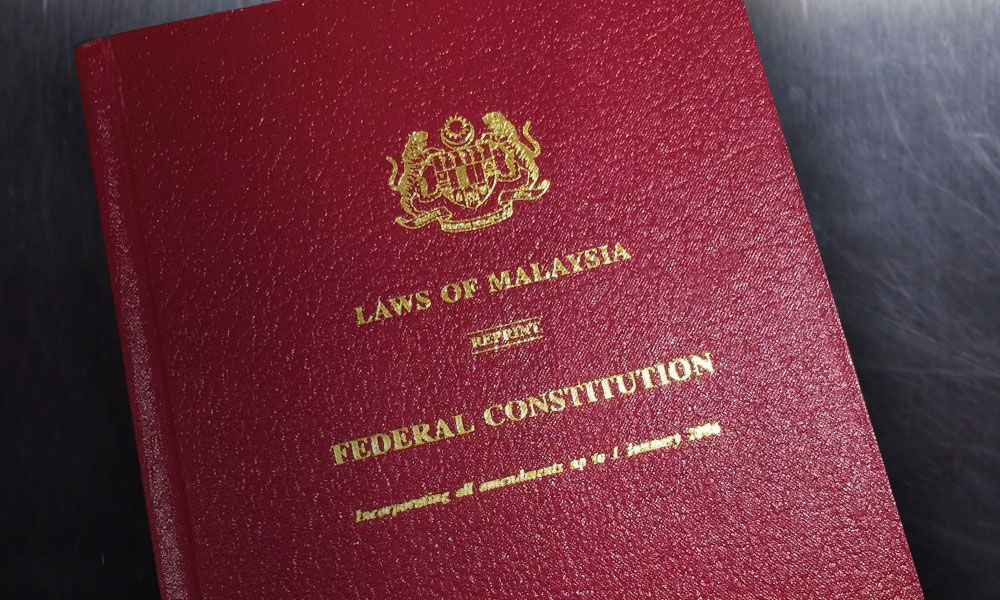
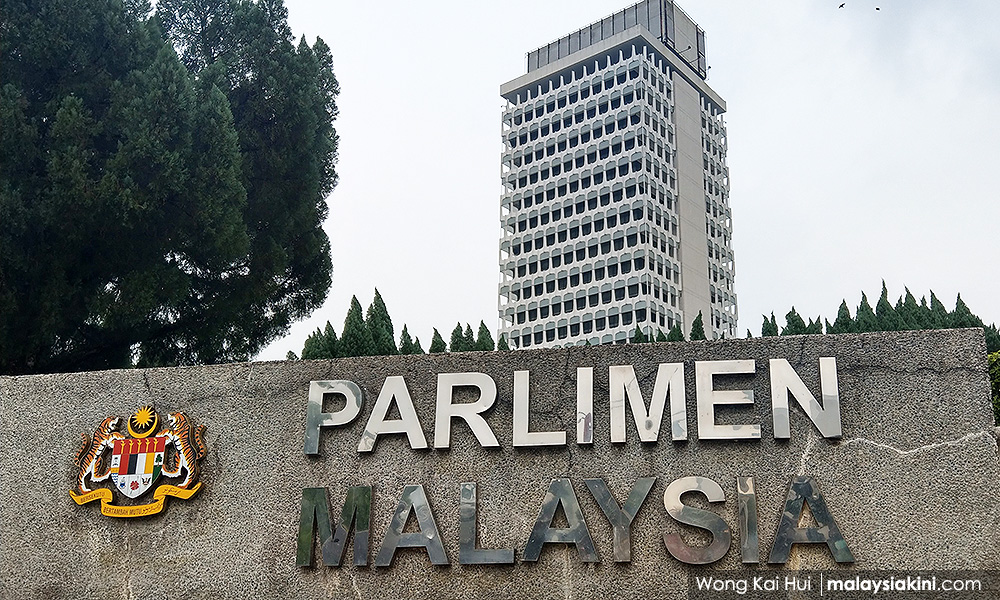

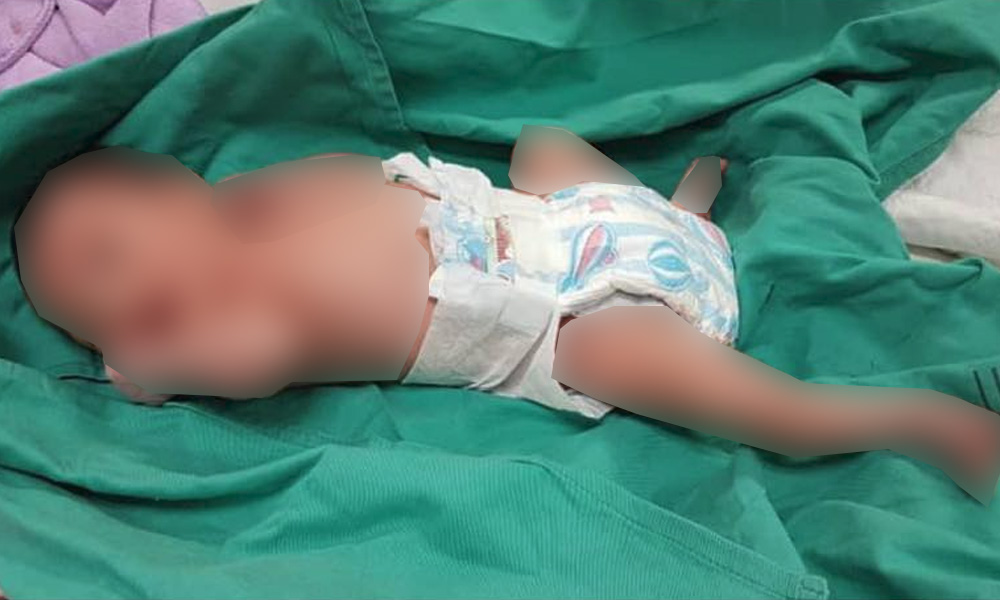
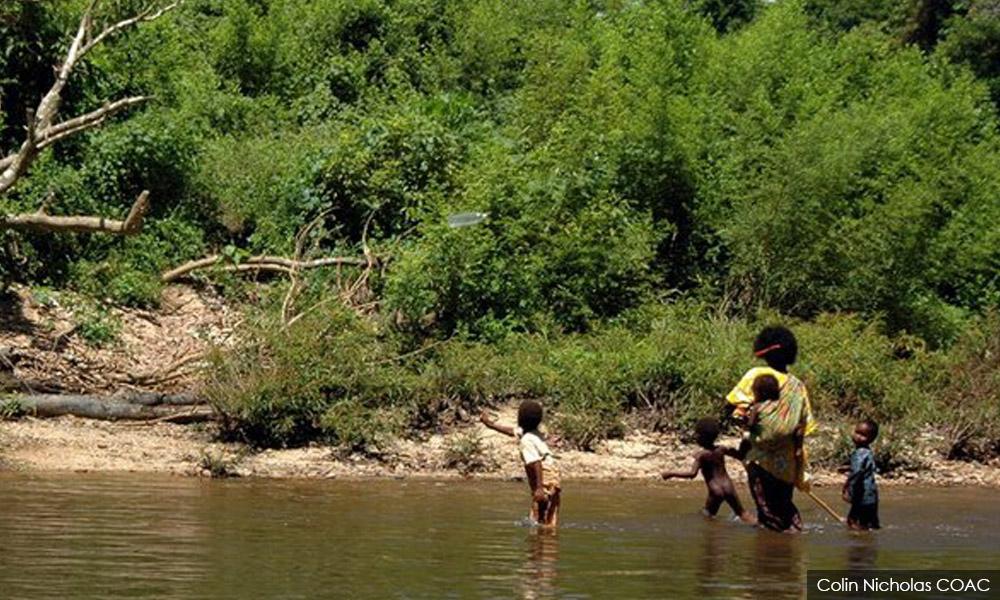
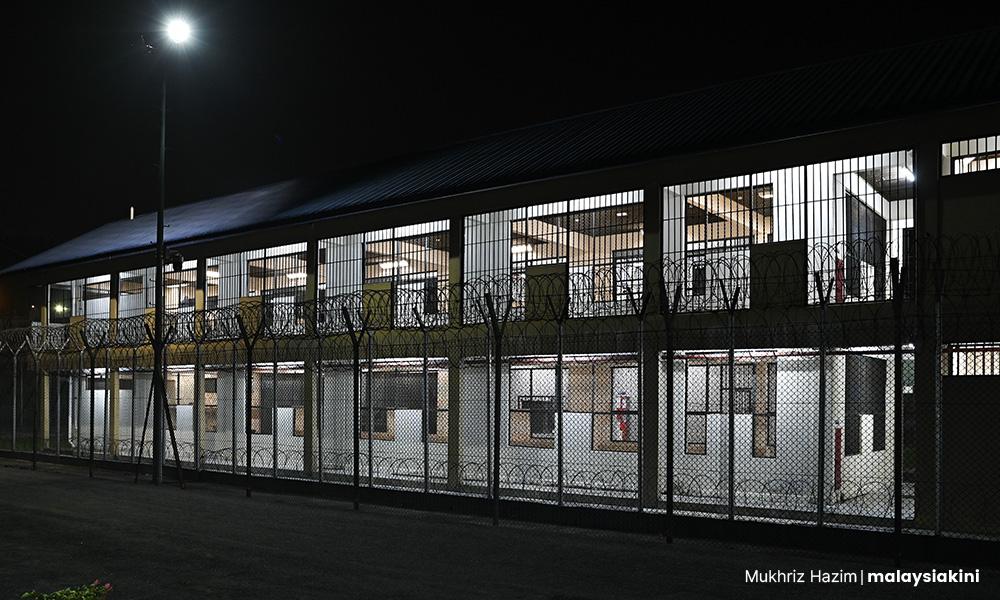
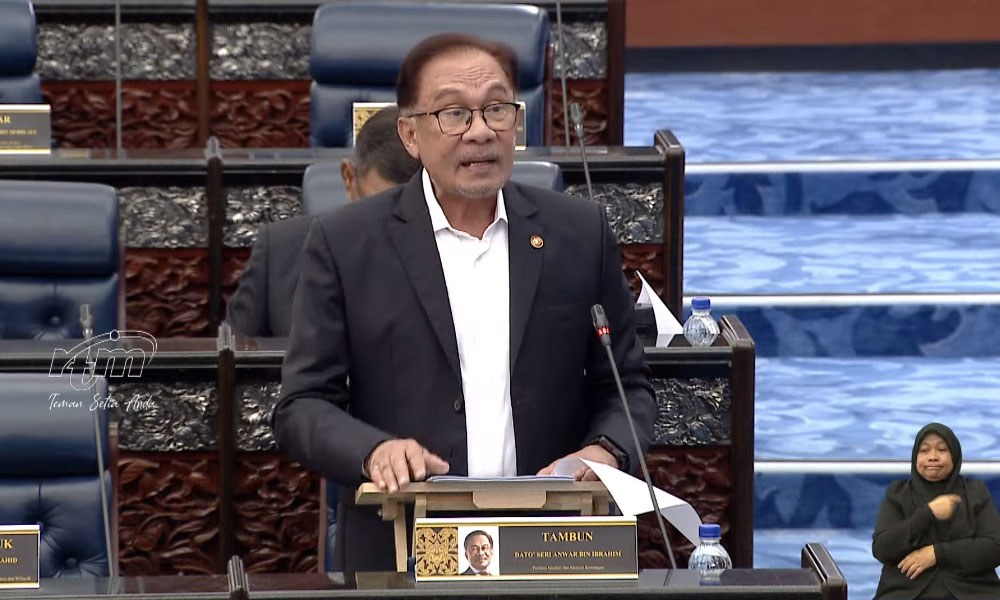

No comments:
Post a Comment
Note: Only a member of this blog may post a comment.